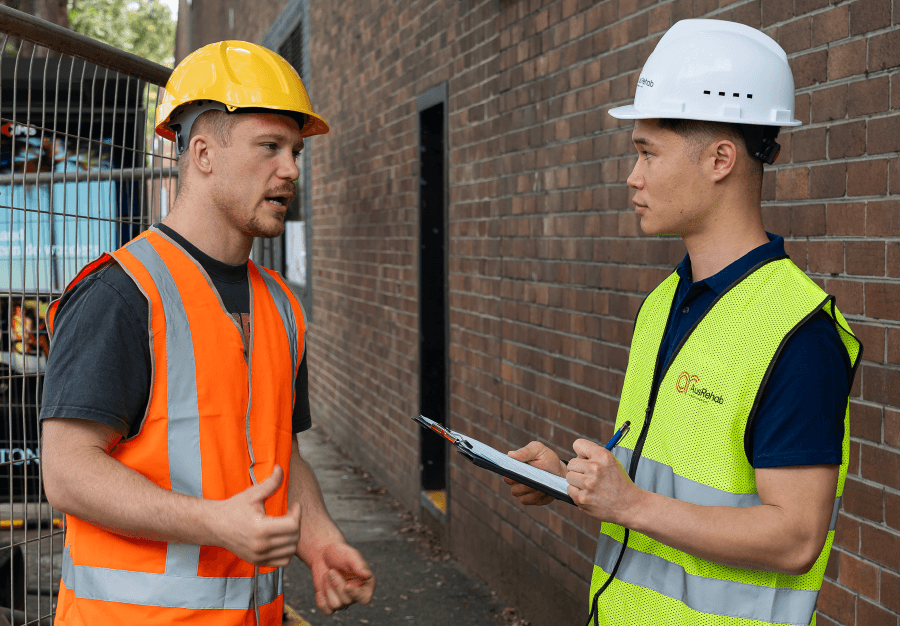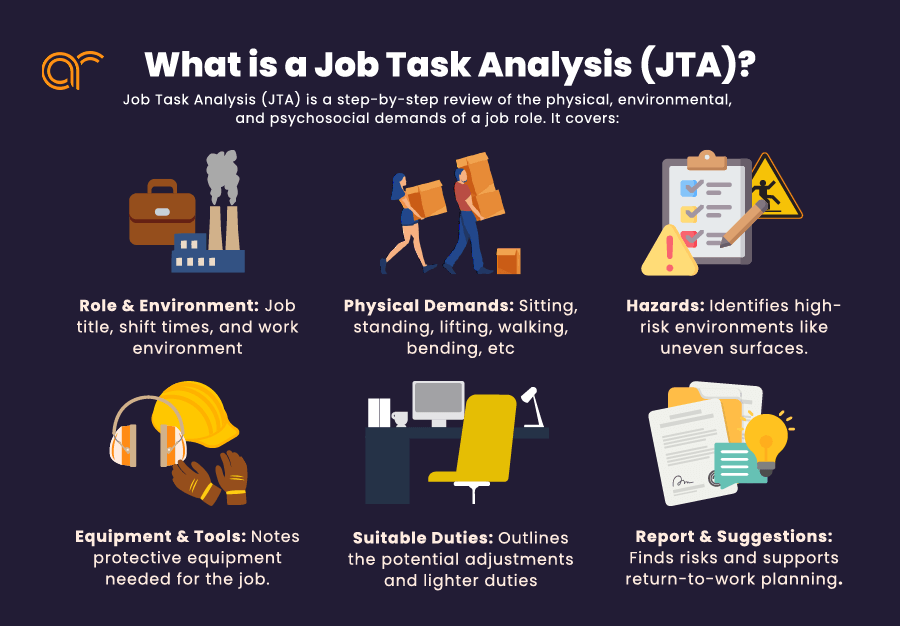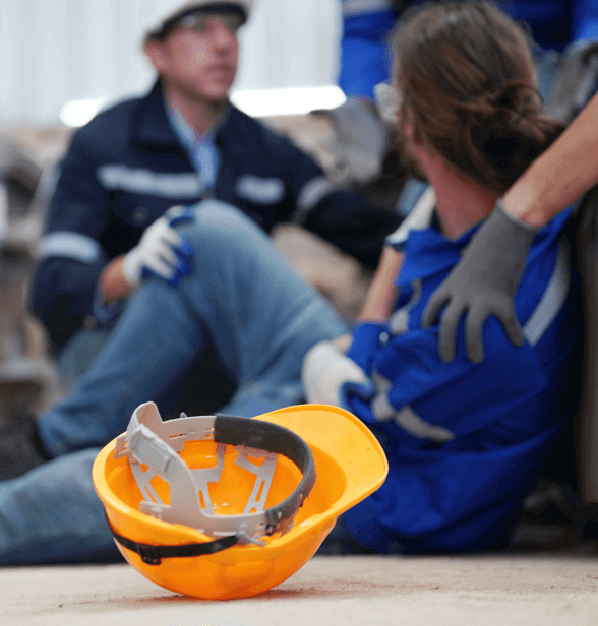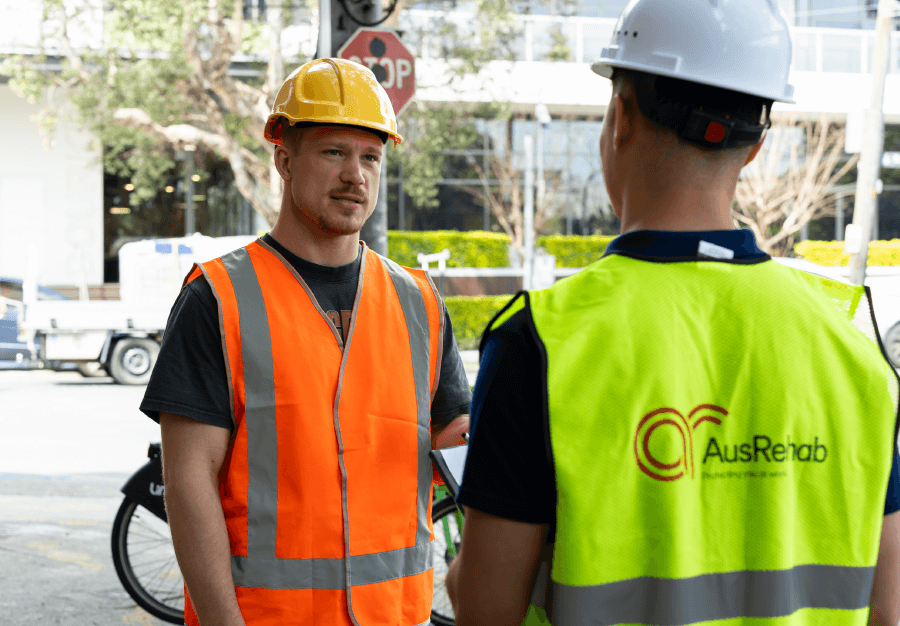A well-executed job demands analysis is essential for safe, sustainable return-to-work outcomes. It ensures the physical requirements of a role are clearly understood by all parties, including treating doctors, insurers, and employers.
At AusRehab, our analysis supports injury recovery, risk management, and suitable duty planning. We work with health professionals to deliver clear, measurable insights that inform decision-making.
Job Task Analysis in Workplace Assessment
We observe tasks on-site to ensure a true reflection of the job. This includes:
- How each task is performed
- Weight, posture, and frequency measurements
- Tools, equipment, and environmental factors
This process provides a practical job demands analysis example for real-world application, not theory or assumption. Each report gives stakeholders a common reference point for what a worker is expected to do.
Functional & Evidence-Based Assessments
Our assessments are based on actual observation and quantification. They are evidence-based workplace assessments led by trained professionals. Every finding is measured, clearly documented, and aligned with industry return-to-work protocols.
This ensures:
- Evidence-based job task analysis reporting
- Consistency across insurers and employers
- Clear documentation for compliance and claims
Linking to Return-to-Work Plan
We bridge the gap between job expectations and worker capacity. Each report directly supports:
- Evidence-based return to work assessment
- Recommendation of suitable duties
- Workplace adjustments to prevent reinjury risks
Our reports are often used by GPs, case managers, and insurers to build compliance-ready return-to-work plans.




